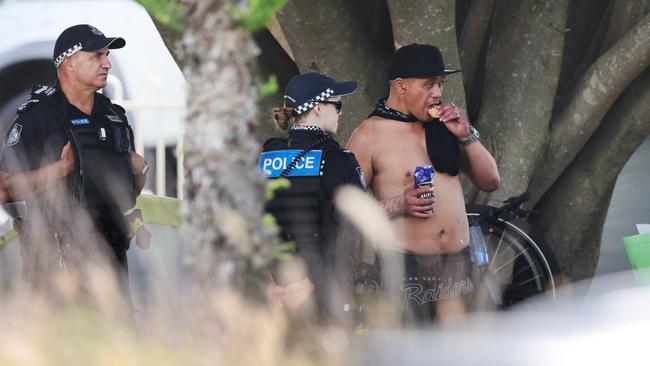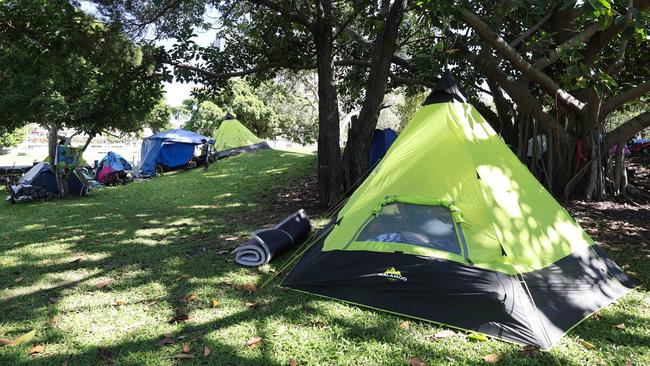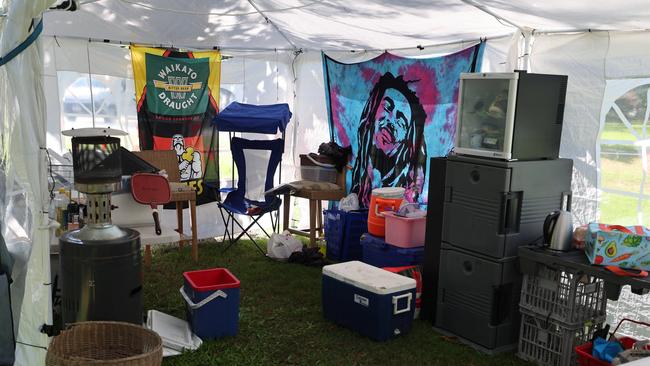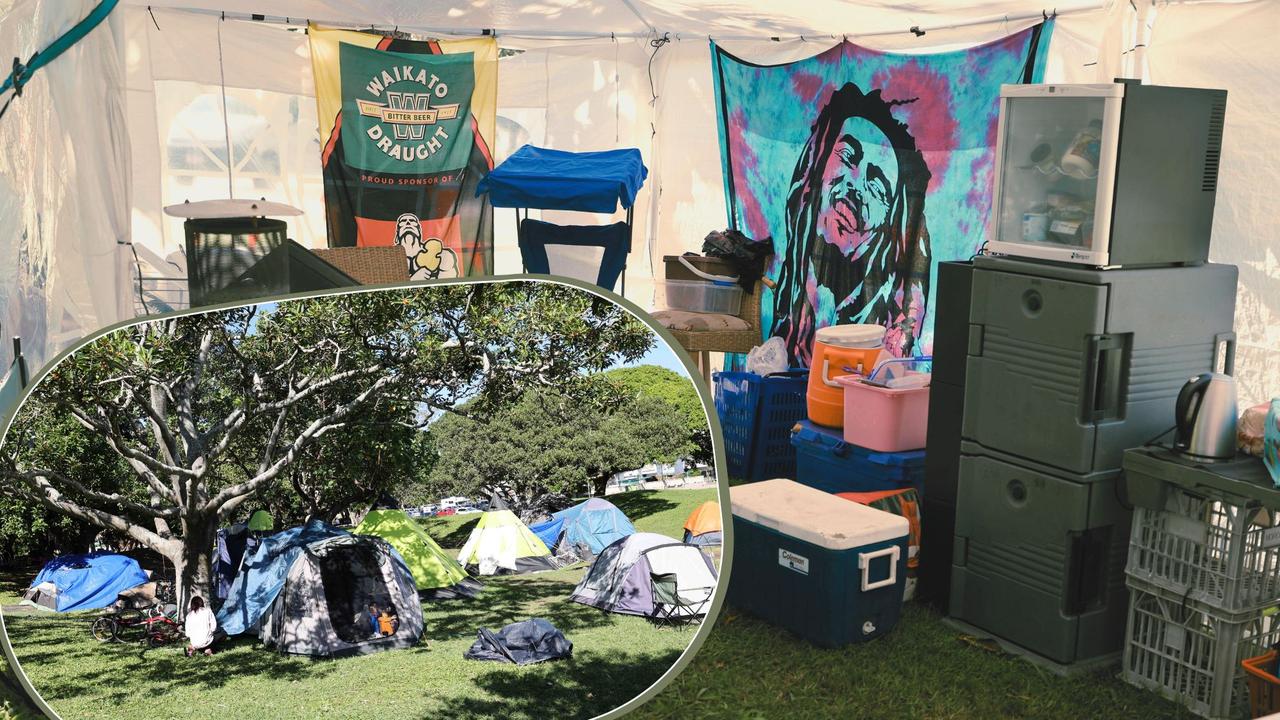City workers concerned about safety tell bosses to rethink removing homeless from parks
Council’s plan to clear a mushrooming Southport tent city has sparked a dispute with its own staff, who are reluctant to evict the occupants.

Council
Don't miss out on the headlines from Council. Followed categories will be added to My News.
Council’s plan to clear a mushrooming Southport tent city has sparked a dispute with its own staff.
Union officials representing workers who would be involved in the eviction said the council was “notified of a dispute” on Monday over what they said was the City’s failure to provide better support and consultation for council officers.
News of the dispute came as councillors at a planning committee meeting on Tuesday unanimously supported moving to a tougher “compliance” model. Homeless people living in the tent city had previously been given a deadline of 5pm Tuesday to pack up or face court action and fines of up to $8000.
Services Union secretary Neil Henderson said the decision to revert to a compliance strategy, which was previously deemed ineffective and abandoned in 2022, would not address workplace health and safety concerns for workers or the needs of rough sleepers.
“It’s clear that a more collaborative and supportive strategy is needed to ensure the safety and well-being of both council staff and the community, including the homeless population,” Mr Henderson said.

Q Shelter CEO Fiona Caniglia urged council to find a longer term solution, with more than 400 people across the city seeking shelter.
‘We understand that homelessness and rough sleeping are complex issues, especially when public safety is a concern,” Ms Caniglia said.
“However, the reality is that these highly vulnerable individuals are living in public spaces due to a lack of alternative housing options that offer the necessary support.
“What we need is long-term, consistent, and coordinated solutions to challenges like this, as they cannot be quickly or easily resolved through short-term thinking.
“When one council enforces fines or threatens evictions from other agencies against people sleeping rough, it only forces those individuals to relocate, simply shifting the problem rather than addressing it.”

Council officers can issue an on-the-spot fine of $806 to the rough sleepers in Carey Park or seek a court-imposed penalty of $8060.
The City has also made it clear it has the further option of charging the homeless for the cost of getting council staffers to clear away the tents.
If they issue a “performance of work” notice, council can recover the amount it costs in taking action “as a debt from the responsible person”.

The City will need police support to enforce its threatened actions – and seek that formally under the new compliance model.
City planning chair Mark Hammel said council had received a 34 per cent increase in complaints, compared to 2023 and 2024 data, from residents about the homeless in parks and public spaces.
He said the reason for the crisis was the lack of investment from previous state governments in social and emergency housing.
“I will give the new State Government the benefit of the doubt for now,” he said.
“But promise that unless there is significant increase in social and emergency housing in this city, and dare I say every other city across Queensland, our city and others will be quick to call them out for failure as well.”

Homeless Carey Park leader Matangirau “Uncz” Hira said the council notice was sent to a lawyer offering them advice. They were intent on staying.
“The lawyer informed us you have to get a Judge to move us off this property,” he said.
Mr Hira believed the council has backed down from its position after City officers were provided by information by campers on human rights legislation.
“I’ve never seen people (authorities) run so fast. They were all with serving people with notices. But when they read the human rights act, that we had given them to read, they hummed and harred and looked at each other,” he said.
“They are the ones making it hard for us. We’re trying to help them. If they haven’t got solutions, we could certainly come together and give them a few. I certainly think it would be a lot of cheaper than what they are doing at the moment, putting people in hotels.”





